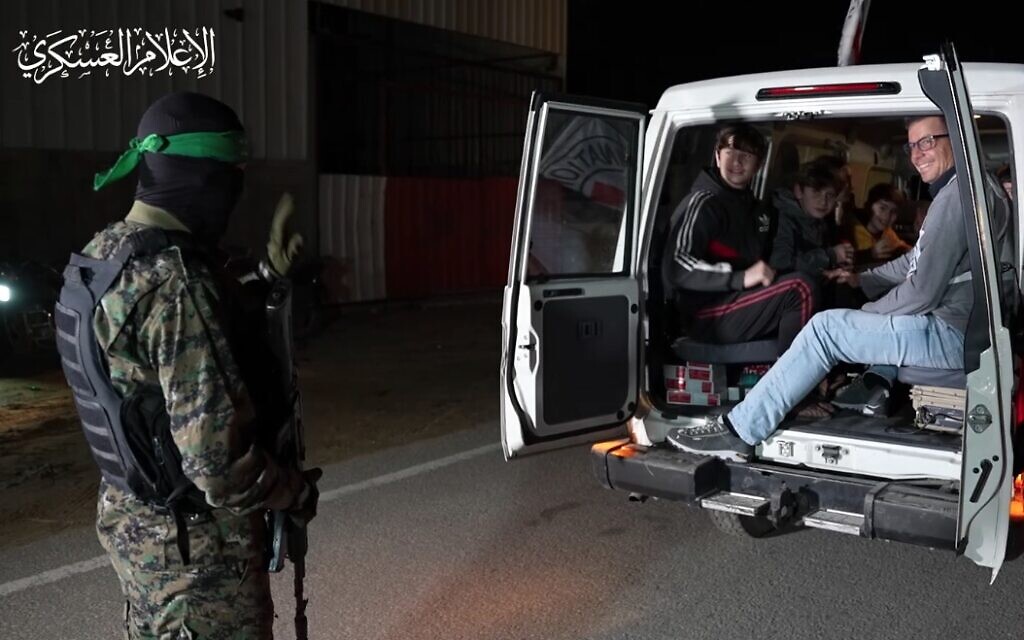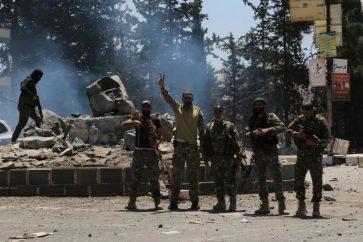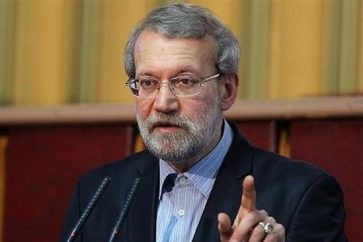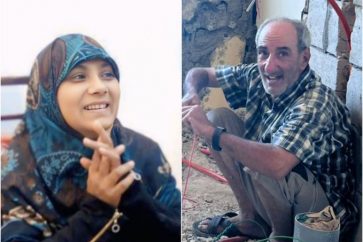The temporary ceasefire between Hamas and the Israeli occupation regime entered its fifth day on Tuesday after a 48-hour extension was agreed.
The extension of the deal meant that more captives are freed, and that more desperately needed aid is delivered to the territory as the humanitarian crisis continues.
Prisoners List
The US newspaper Washington Post indicated that the CIA Chief William Burns visited Qatar on Tuesday for meetings with Qatari officials as well as his Israeli and Egyptian counterparts to push for a broader hostage deal that would expand beyond women and children to include negotiations for men and soldiers.
Majed Al-Ansari, spokesperson for the Qatari Ministry of Foreign Affairs, said his country hopes to see the truce extended further.
“We have from Hamas confirmation now that 20 extra hostages will be released in the next two days, and on the Palestinian side that would mean from Israeli jails … 65 Palestinians will be released from Israeli prisons,” Al-Ansari told Al-Jazeera.
Meanwhile, Israeli Prime Minister’s Office announced it has received the list of Israeli hostages set to be released on Tuesday by Hamas.
The list of hostages is currently being reviewed, said the office, and “notices are being delivered at this time” to the families of those set to be freed after over 50 days as hostages in Gaza.
Fifth Release
Al-Qassam Brigades, Hamas military wing, handed over 10 Israeli captives to the Red Cross, according to Al-Manar correspondent Imad Eid.
Al-Manar reporter added that 30 Palestinian prisoners are freed late Tuesday in accordance with the terms of the extended truce.
Fourth Release
Earlier overnight, the two sides completed their fourth release of captives from Gaza in exchange for Palestinians held in Israeli jails under an original four-day truce deal.
Three Palestinian women and 30 children were freed from Israeli prisons in the fourth exchange. The Red Cross also said it has successfully facilitated the release and transfer of 11 Israeli captives held in Gaza.

150 Palestinian prisoners and 50 Israeli captives have been released as part of the initial deal.
In addition to thousands of Palestinian prisoners, Israeli authorities continue to hold 60 Palestinian women in jail, with most of them arrested after October 7, a local nongovernmental organization says.
Speaking to Anadolu, Amal Sarahneh, media officer at the Palestinian Prisoners Society (PPS), said the Israeli army detained 56 Palestinian women and girls in a major wave of arrests in the occupied West Bank and East Jerusalem after October 7, so far detaining 3,260 Palestinians.
“They beat me before releasing me from Nafha jail, then they beat me when I was being examined by the doctor. The situation is horrible in jails. They are getting back at the detainees.”
– A testimony by one of the hostages, who were released today within the exchange deal. pic.twitter.com/a3UZrNP6Wi
— Quds News Network (@QudsNen) November 28, 2023
Truce Violations
Meanwhile, media reports quoted witnesses in Gaza City as saying that Israeli tanks fired smoke bombs at Sheikh Radwan Neighborhood and Shati Refugee Camp this morning then they repositioned to the west of Gaza City.
There were also reports that rescuers have pulled out about 150 bodies that were stuck under the rubble of the bombarded homes in Gaza City and in the north.

Humanitarian Situation
The Israeli occupation forces prevented temporarily the access of the aid trucks to the Northern Gaza, deploying tanks to cut off Salahuddine highway.
Later on, Al-Manar reporter indicated that 200 aid trucks entered entire Gaza, including the northern areas.
Health Ministry in Gaza said on Tuesday that the Israeli occupation has been preventing delivery of fuel to hospitals in northern Gaza Strip.
The Government Media Office said the strip is in dire need to field hospitals as health workers have very limited capabilities.
For its part, UNRWA described the situation in the Gaza Strip as very hard, amid reports of disease breakouts in refugee shelters.
“At Nuseirat refugee camp in Gaza, people are lining up at the last working petrol station. Aid trucks are supposed to deliver gas to this station as people are using wood for cooking and keeping warm,” Mohamed Adnan Abu Hasna, an UNRWA spokesperson told Al-Jazeera.

“… At least 200 trucks are needed on a daily basis to provide basic life supplies to the people of Gaza. Those who have fled are in poor health and there are reports of disease breakouts in the shelters,” the spokesman added.
UNICEF spokesperson James Elder, who visited the enclave, said situation on the ground in Gaza is “desperate”, from the destruction of infrastructure to people fleeing their homes.
“It’s a war zone … You’ve got hundreds of thousands of children who are not in school, who are in very overcrowded camps, who are cold, who do not have enough food, do not have enough water, who are now at risk of a disease outbreak,” Elder added.
Source: Al-Manar English Website




